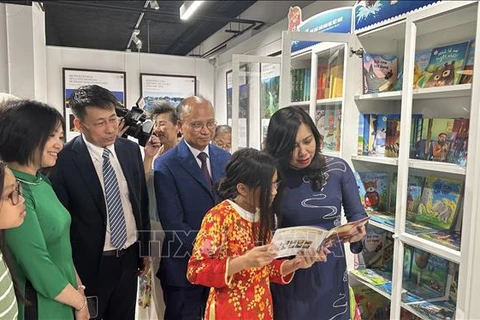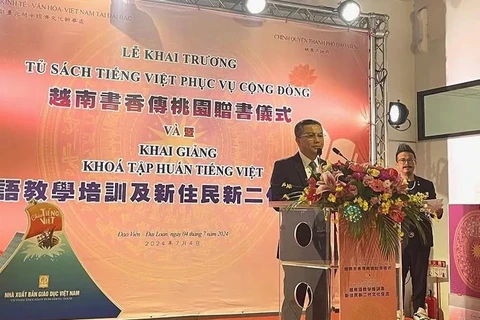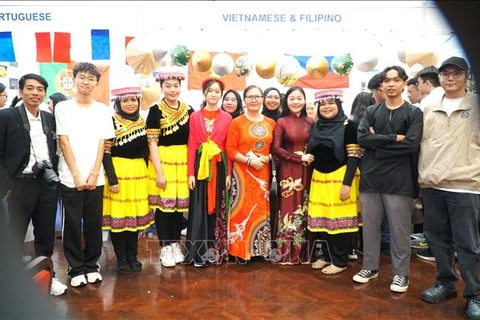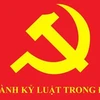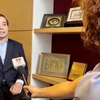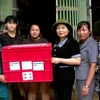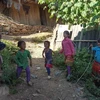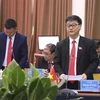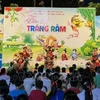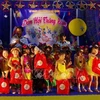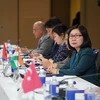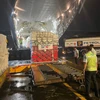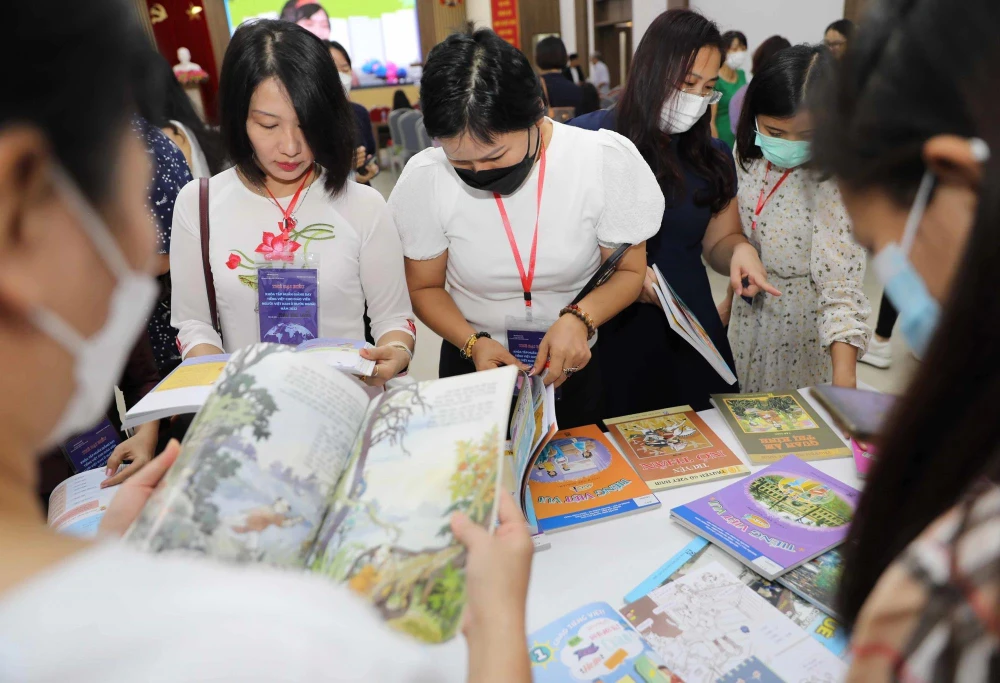
Hanoi (VNA) – For the Vietnamese community abroad, preserving the Vietnamese culture and promoting the Vietnamese language are considered a vital task to keep the cultural identity of their own homeland.
Although overseas Vietnamese (OVs) are aware of the need to maintained their national identity, cultural integration and life in the host country render teaching and practicing Vietnamese difficult.

Principal of the Nguyen Du Lao-Vietnamese Bilingual School Sivanhueang Phengkhammay in Vientiane, Laos said she felt the pride and responsibility among educators in preserving the Vietnamese language for the young generations of Vietnamese living abroad.
At her school, Vietnamese and Lao students not only learn the Vietnamese language but also the country’s culture and history, Sivanhueang said. She went on to say that teachers use various methods to foster a love for the subject among students and enhance their understanding of the Vietnamese culture.
In the future, the school will roll out measures to assure that all staff and teachers can communicate and understand Vietnamese at a basic level, she said. Each teacher and student will become a cultural ambassador who will spread the thousand-year-old culture of Vietnam not only in the ‘land of a million elephants’ but also around the world.
Sharing experiences in preserving the Vietnamese language at the Fourth World Conference of Overseas Vietnamese held recently in Hanoi, Pham Thanh Xuan, a permanent member of the Association of Overseas Vietnamese in Russia, said the association's goals are raising Ovs’ awareness on the issue. This includes honouring the beauty and value of Vietnamese, maintaining its use within Vietnamese families, and spreading the language to foreigners.
To this end, the association has taken specific measures such as creating a playground related to the Vietnamese language and culture for both Vietnamese and Russian children and supporting the establishment of cultural centres and the teaching of Vietnamese in Russian universities, research institutes, and high schools, she noted.
The association often holds cultural and art activities to enhance cultural exchange, and improves Vietnamese language skills in the Vietnamese community, particularly among the younger generation.
To better preserve the Vietnamese language and culture among OV communities, Xuan suggested that the Vietnamese government should organise in-person and online training programmes for Vietnamese teachers abroad as well as Vietnamese language summer camps for Vietnamese children living overseas, and provide teaching materials to serve the teaching and learning of Vietnamese abroad.
Due to geographical, political, and social factors, the teaching of Vietnamese in Laos and Russia has certain advantages. However, in many countries, Vietnamese is fading among young OVs, causing concerns among the expat communities abroad.

Nguyen Viet Ha, Executive Director of the Vietnam Australia Cultural Exchange Organisation (VACEO), said the impact of Western culture on the younger Vietnamese generation in Australia has led to a decline in awareness and interest in preserving and promoting the national culture. She worried that this cultural assimilation could diminish the connection to Vietnamese values and traditions.
Given that context, VACEO faces challenges in teaching the language and preserving culture, such as limited financial and human resource, lack of facilities and support resources, inadequate media and promotion channels, and difficulties in mobilising the involvement of organisations and individuals.
Ha proposed that the government provide financial support to organise cultural events, open Vietnamese language classes, and develop cultural products such as books and documentaries about the Vietnamese culture.
Tran Nhat Hoang, Deputy Director of the Department of International Cooperation at the Ministry of Culture, Sports, and Tourism (MoCST) said that honouring, teaching, and learning the national language contributes to building a stable, united, and strong Vietnamese community abroad, which indirectly contributes to the homeland.

To further promote its effectiveness, the MoCST encouraged maintaining the use of Vietnamese within Vietnamese families during daily interactions, thus, creating momentum to improve the quality of teaching and learning Vietnamese in the community, Hoang said. The ministry also asked local authorities and educational institutions to include Vietnamese in educational institution curriculums in areas with a large Vietnamese population.
Other solutions include establishing libraries, introducing books, and promoting the Vietnamese culture in other countries, leveraging advances in information technology to create communication channels connecting expatriates with their homeland. Providing online Vietnamese language learning software, organising competitions on the Vietnamese language, and summer camps to inspire national spirit can all contribute to enhancing Vietnamese language proficiency among expatriates./.
